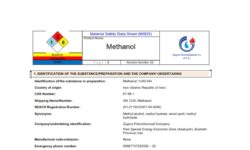Publ 3535 (SP) ⏬⏬
Welcome to the world of Publ 3535 (SP)! In this engaging course, we delve into the intricacies of professional content writing, equipping students with the essential skills to craft compelling and impactful written materials. Through a combination of theoretical concepts and practical exercises, learners will explore various aspects of effective storytelling, audience analysis, persuasive communication, and stylistic techniques. With a focus on honing both creativity and precision, Publ 3535 (SP) provides an invaluable foundation for aspiring writers seeking to excel in the realm of English content creation.
Publ 3535: A Brief Overview
Publ 3535 is a course offered in the field of publishing studies, focusing on various aspects of the publishing industry. This course provides students with a comprehensive understanding of the processes involved in creating and distributing publications, including books, magazines, newspapers, and digital content.
The course covers a wide range of topics related to publishing, such as editorial workflows, content development, design principles, marketing strategies, copyright law, and emerging trends in the industry. Students are exposed to both theoretical concepts and practical skills necessary for success in the publishing field.
Throughout Publ 3535, students engage in hands-on exercises and projects that simulate real-world publishing scenarios. They learn how to create compelling content, develop effective marketing campaigns, collaborate with authors and illustrators, navigate digital publishing platforms, and analyze market trends.
By studying Publ 3535, students gain valuable insights into the multifaceted nature of the publishing industry and develop the skills required to thrive in this dynamic field. The course equips them with the knowledge needed to adapt to the evolving landscape of publishing and make informed decisions to meet the demands of modern readership.
SP (Software Engineering Process)
Software Engineering Process (SP) is a systematic approach used in the development of software systems. It encompasses a set of activities, methods, and tools that facilitate the creation, operation, and maintenance of high-quality software products.
A key aspect of SP is its focus on managing the complexity and risks associated with software development. It provides a structured framework for software engineers to follow, ensuring that the development process is organized, efficient, and predictable.
The SP lifecycle typically includes several phases, such as requirements analysis, design, implementation, testing, deployment, and maintenance. Each phase involves specific activities and tasks that contribute to the overall success of the software project.
The use of SP methodologies and practices helps improve software quality, reduce development costs, and enhance team collaboration. It enables software engineers to better manage project schedules, track progress, identify potential issues early on, and make informed decisions throughout the development life cycle.
Some commonly used SP models include the Waterfall model, Agile methodologies (such as Scrum and Kanban), and the Spiral model. These models provide different approaches to software development, catering to various project requirements and constraints.



